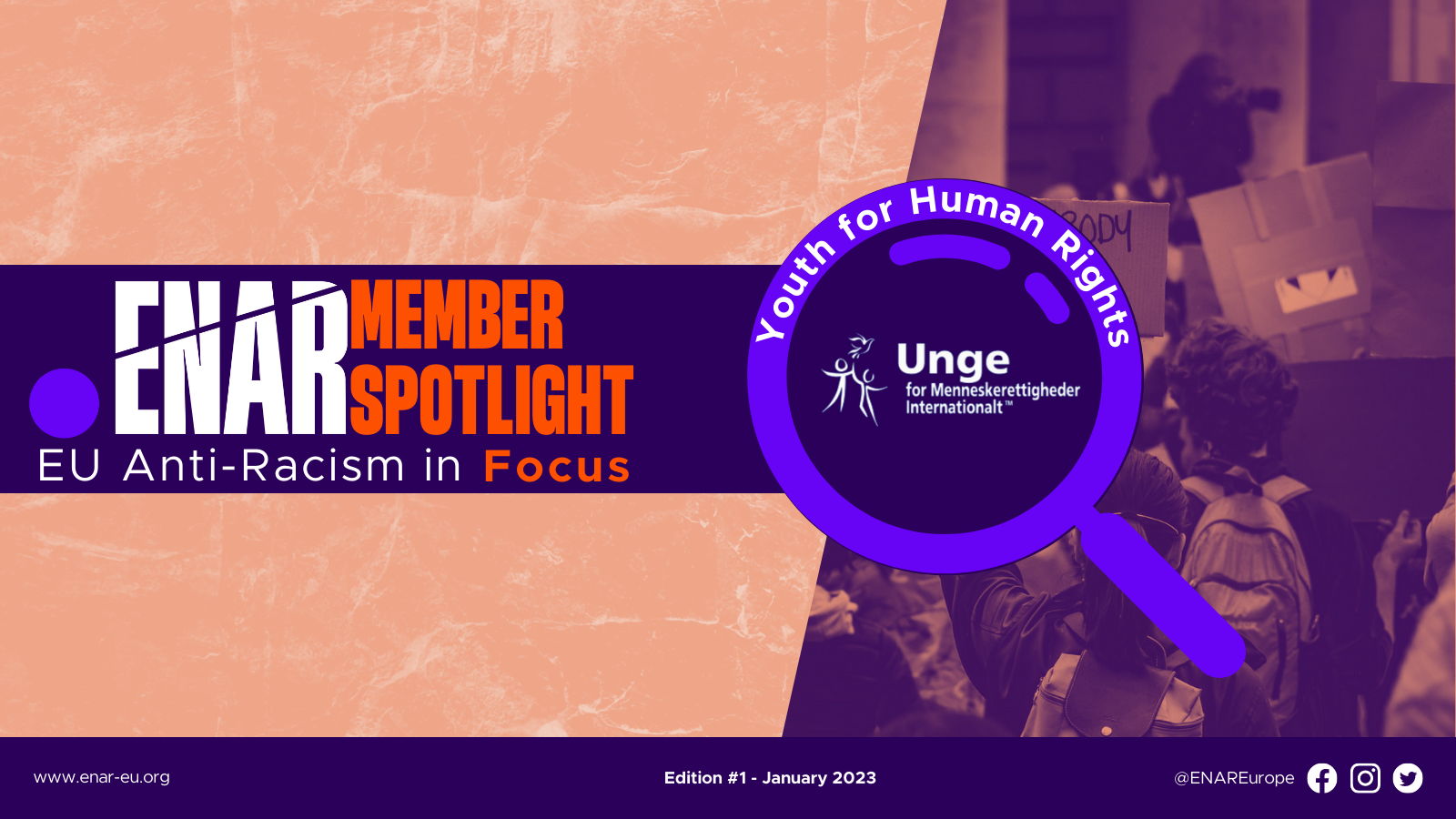
Member Spotlight: Youth for Human Rights Denmark
The ENAR Member Spotlight is a monthly series where we highlight the work of our member organisations. This month we talked with Gregory Christensen from Youth for Human Rights Denmark, to find out more about their work towards racial equality, the challenges they face, achievements and much more.
1. Can you introduce yourself and your organisation?
My name is Gregory Christensen, I am the director of Youth for Human Rights Denmark since 2015 and I have been a part of the ENAR Denmark board since 2013. I entered the human rights field in 2006, where I worked for Amnesty International Denmark and in 2010, I joined Youth for Human Rights Denmark. We are a registered non-profit organization focused on human rights education to create human rights advocates and cooperate with likeminded groups to campaign for the implementation of the universal declaration of human rights in legislation.
2. What are the specific themes that you work on?
We provide quality materials and workshops for human rights education for primary school, high school, college and university. We also offer this to institutions, law enforcement and other relevant organizations. We do lobby and advocacy work, which succeeded in getting the subject of human rights to be included in Danish school curriculum. In our child rights advocacy work, we were part of changing the law regarding solitary confinement of minors in Denmark. We work with like-minded groups to bring more cooperation which can promote the universal declaration of human rights, through events, seminars and other activities.
3. What are some of the biggest challenges in your organisation?
Funding and qualified, stable volunteers to run the activities. We are mainly volunteer based and so volunteers come and move on as they grow older. It takes time to establish new volunteers, so it is a continual cycle.
4. Explain how structural racism manifests in Denmark
Anti-Muslim and anti-migrant legislation, regulations and practices, such as unjust migration and housing regulations that violate human rights.
5. What are the challenges Human Rights Defenders face in Denmark?
Lack of publicity in media for the important human rights work being done and the problems that need addressing. Lack of non-earmarked funding. Inadequate communication channels to government and politicians.
6. What kind of advice would you give to a youth activist who wants to start driving change?
Get involved in activities of human rights groups and learn a bit about the issues and find out which subject you are most passionate about. Then find the organisations working with this issue and get involved with them. If there is none covering the human rights issue you find most important, then start that activity by finding others who think the same as you. Contact human rights networks and use them to seek knowledge about funding and other challenges.
7. How important is it to have institutional allies in advancing your work?
It is extremely valuable to have institutional allies, as these can open doors to spreading the message, broader human rights education implementation and helping qualify the organization for funding.
8. Do you think there is a big pressure on civil society and Human Rights Defenders in Denmark?
I believe mainly the pressure stems from the magnitude of tackling all the human rights issues without sufficient manpower and resources. Some politicians and discriminatory groups succeed in creating negative media with false narratives and misinformation, which is perpetuated by a minority, but unfortunately affects majority politics enough to introduce discriminatory migration regulations. This often includes attacks on human rights defenders and their groups.
9. What has been a big achievement in your organisation?
We have since 2006 reached more than 30% of all schools in Denmark with our human rights educational materials and held around 100 events highlighting human rights issues. Through our collaborative lobbying work, laws have been changed to disseminate and protect human rights.
If you are a member organisation of ENAR and would be interested in having a spot in our next Members Spotlight, please reach out to Network Communications Associate Laura Thyssen Thorøe at laura@enar-eu.org.



